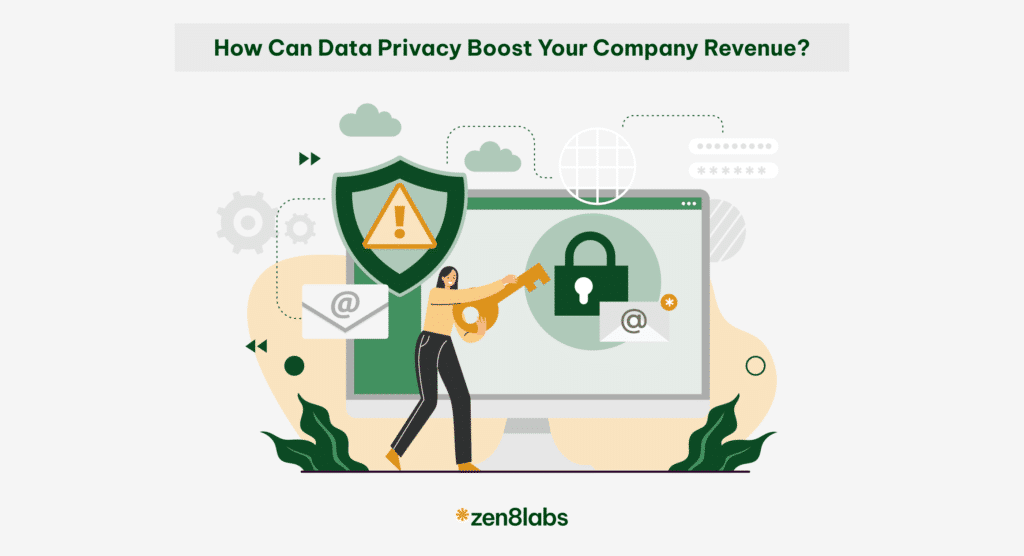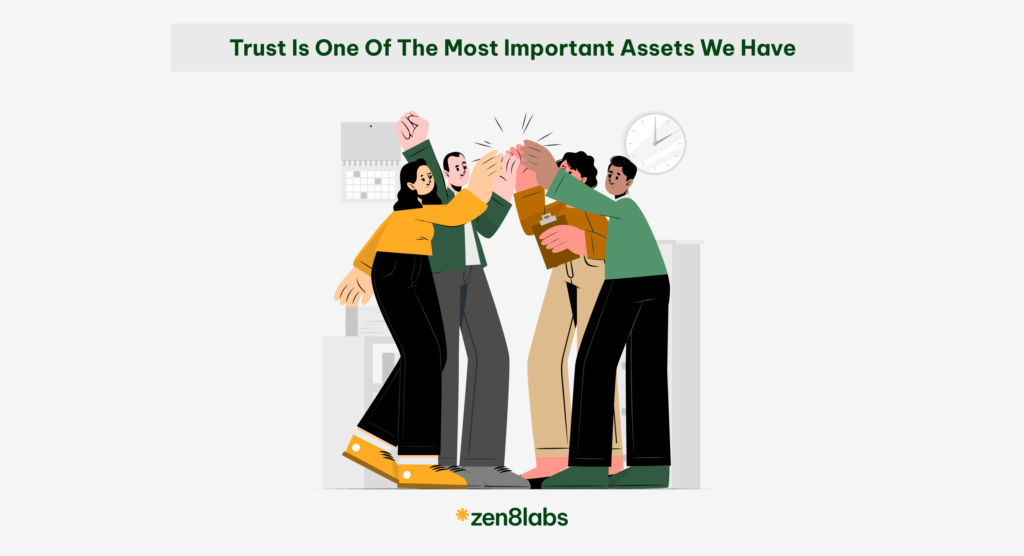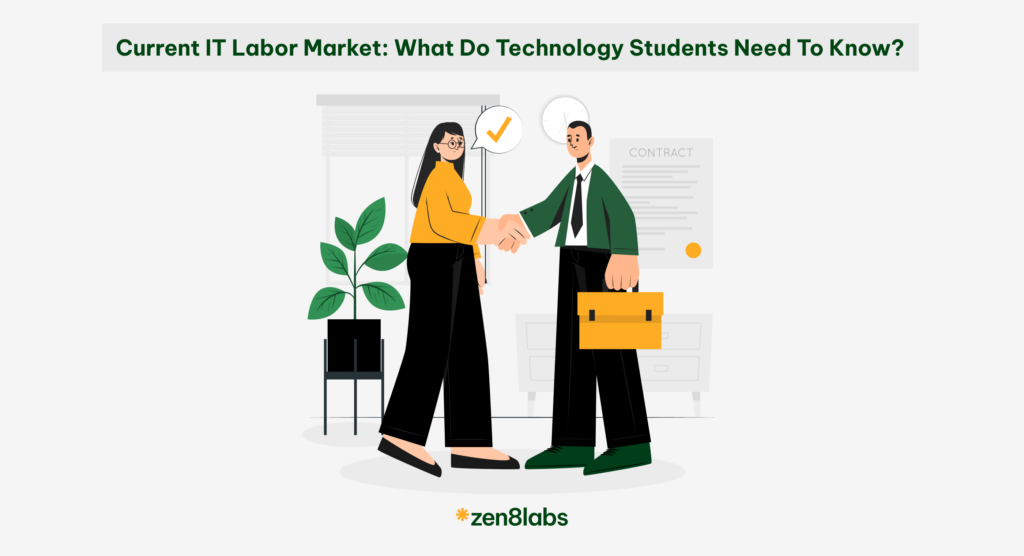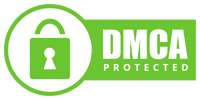
Do you care about data privacy as much as your customers do? If not, now is the time to do so. Prioritizing data privacy, as indicated by research from the Harvard Business Review, can save your company millions and enhance revenue.
How data privacy enhances revenue for your business?
Business owners often perceive data privacy differently than their consumers, who value greater control over their digital data. However, protecting data privacy appears to limit revenue growth opportunities for entrepreneurs. This explains the hesitancy of 51% of small businesses to prioritize data privacy protection, as reported by Digital Today.
Who could blame an entrepreneur for thinking that way? We don’t. Customer data provides real-time and rich insights into each customer’s buying behavior. If companies can use this information of real-time data and rich insights. Then they can acquire as much as 40% more personalized marketing. Entrepreneurs may perceive a potential trade-off here: the more data privacy protection, the less they gain.
But here’s the thing: If safeguarding data privacy hampers revenue growth, why do 84% of businesses consider it the most valuable factor when purchasing software?
Why has Apple positioned itself as a mainstay of user privacy, limiting demands to its owned properties to maintain a tight grip on first-party data?
Why has Google repeatedly tried to convey its commitment to protecting customer data? “Yes, we use data to make products more helpful for everyone. But we also protect your information,“. Wrote Sundar Pichai, chief executive of Google, in The New York Times.
Now, you are sensing that protecting data privacy can positively influence your business.
In this post, we will demonstrate how data privacy protection can contribute to your revenue growth!
Data privacy gives businesses a competitive advantage
The way companies collect, store, and share consumer data can become a competitive business advantage.
Look at the following statistics from McKinsey, a worldwide management consulting firm, for an overview of the data privacy landscape.
- One in ten internet users worldwide (and three in ten US users) deploy ad-blocking software that can prevent companies from tracking online activity.
- 87% said they would not do business with a company if they had concerns about its security practices.
- 71% said they would stop doing business with a company. If it gave away sensitive data without permission.
- More than 120 countries have already addressed international data protection laws in some form to provide better protection for their citizens and their data.
Just as customer data becomes increasingly valuable, customers are growing more concerned about its usage.
However, many companies still neglect customer data privacy. “They care more about how to explain to their customers that they don’t steal personal data”. Citing Zack Whittaker, the security editor at TechCrunch.
So, if your company demonstrates transparent data privacy practices, it can become a competitive advantage.
Data privacy helps minimize costs of a personal data breach
Another compelling reason why data privacy matters to businesses is the potential to save millions by preventing personal data breaches that can affect companies of all types and sizes.
A data breach, whether intentional or unintentional, involves releasing confidential information into an untrusted environment. This can occur through hacking, malware attacks, insider leaks, payment card fraud, physical loss or theft of files, and human error.
Regardless of the cause, a data breach is always uncomfortable for businesses. The 2023 Cost of Data Breach Study by IBM Security reveals that fines now average $4.45 million per company, marking a 15% increase over three years.
The financial repercussions are substantial, but the loss of customer trust is another significant drawback, with 88% of American consumers often discontinuing business with a company that has experienced a data breach, according to IBM.
Remember the $700 million fine Equifax faced in 2017 for its breach? During that period, Equifax’s Buzz score, indicating whether people heard something “positive or negative” about the brand, plummeted from zero to -33 in the first 10 days since the hack was publicized.
From financial damage to reputation destruction, a data breach spells disaster for every business. Investing in robust data privacy upfront is the most cost-efficient approach to avoid such calamities. Investing on a secure data privacy system is far wiser than dealing with recovery and reputation management.
Data privacy helps gain customer trust
Data privacy and customer trust go hand in hand, and every business action can either build higher trust or erode it. Insecure data privacy leads to diminished trust, as McKinsey highlights consumers consider digital-trust aspects nearly as crucial as cost and delivery time. 94% of executives said their customers would not buy from them if their data was not properly protected, up from 90% a year ago, a study by Cisco found.
Conversely, a commitment to secure data privacy fosters trust. Over half of users (60%) are inclined to make online purchases from a company known for its trustworthy handling of customer data.
Having good data privacy can make or break customer trust. Speaking at a conference, Matthew Fell, CBI UK Chief Policy Director, emphasizes that responsible data usage is the primary reason a customer stays loyal to a business. Irresponsible data usage is the main motive for customers to look elsewhere. Implementing a robust cybersecurity strategy becomes a key factor in making a business more competitive.
How can businesses enhance customer data privacy?
Weak security puts both you and your customers at risk of a cyberattack. Here are steps to enhance data privacy security for the benefit of your customer, and your business.
Understand customer expectation
To protect data privacy effectively, businesses must align with customer expectations. A solid data privacy strategy, as highlighted in the latest McKinsey study, involves:
- Ask only for relevant information: A key practice is to request information directly related to your product. This approach, favored by 52% of customers, establishes a trustworthy relationship.
- React quickly to hacks and breaches: Swift response to security incidents demonstrating a commitment to protecting customer data.
- Limit personal information: Avoid asking for too much personal information, respecting customer privacy.
- Proactively report incidents: Transparently communicate any hacks or breaches, building trust through openness.
- Build a trustworthy brand: Establish and maintain a brand image that customers perceive as trustworthy.
- Avoid collecting passive data: Respect customer privacy by not collecting unnecessary data like clicks or browsing history.
- Demonstrate a history of security: Having few hacks or breaches in your history enhances customer confidence.
- Avoid tracking cookies: Limit the use of tracking cookies to minimize invasive data collection.
- Promote privacy for products: Implement features like two-factor authentication to enhance product privacy.
- Trustworthy leadership: A leadership team perceived as trustworthy contributes to overall brand trust.
- Operate ethically: Avoid operating in countries with untrusted governments, aligning with ethical practices.
- Gain trust from friends and family: Being considered trustworthy by friends and family enhances brand trust.
- Share data protection approach: Communicate your approach to protecting customer data, demonstrating transparency.
- Comply with regulations: Being part of a highly regulated industry and headquartered in a country with a trusted government enhances trust.
- Publicize consumer-privacy interest: Actively communicate your commitment to consumer privacy, showcasing it as a top priority.
Clearly explain data usage to customers
Many consumers want to know more about how their data is used. However, companies often need the customer in mind to create privacy policies. According to Carnegie Mellon University professors Aleecia M. McDonald and Lorrie Faith Cranor, these documents are crafted by lawyers for lawyers, dense with legal jargon and opaque justifications for data collection and selling.
For a transparent brand, writing a clear and concise privacy policy is crucial. Such a policy, written from a human-centric perspective, treats customers like rock stars in every word. This approach, combined with the following tips, enhances transparency and builds trust:
- Keep it clear and concise: Share how you Sharelects, stores, and uses customer data, ensuring easy understanding.
- Help users gauge their exposure: Provide a straightforward list of partner companies that may purchase and use customer personal information, contributing to transparency.
Switch to the Cloud and invest in data privacy security solutions
Cloud services offer automatic data backups online with encryption often tougher to crack than internal solutions. Making this transition provides enhanced security for data compared to on-premises networks.
Following this, investing in robust data security solutions, whether on-premises or in a hybrid cloud, is crucial. These solutions offer better visibility and insights for investigating and fixing cyber threats. They enforce security policies and access controls in almost real-time, ensuring compliance with regulations and enhancing overall data security.
How can zen8labs help?
Need a nudge to improve your customer data privacy? With 137 out of 194 countries globally having data privacy or security rules that are becoming stricter, now is the prime time to kickstart your data privacy protection plan.
Regardless of where you are on your data privacy journey, zen8labs has a dedicated team, tools, and solutions to simplify and enhance every step. Collaborating with us can be the best experience ever because:
- It’s result-driven: You don’t need to worry about the “expectation and reality gap”. With a richly experienced team player, we’re pleased to have met our client’s standards.
- It’s easy: Any feedback is welcome here. You will be thrilled with the teamwork amongst us during the project.
- It’s beneficial: We respect our client and commit to double your time’s worth.
Don’t think twice – Don’t get left behind
Data privacy is the future, and consumers are taking notice. More end users prioritize businesses with a strong data security track record when making buying decisions. However, many businesses are proactively adopting data privacy protection systems, saving millions yearly.
Let’s work together so you don’t get left behind! Collaborating on implementing robust data privacy measures ensures your business remains competitive and aligns with evolving consumer expectations.






